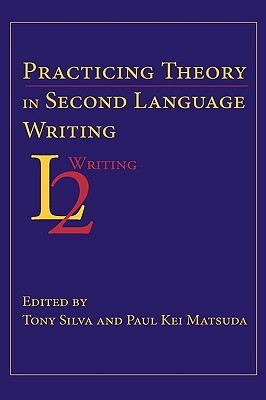
- We will send in 10–14 business days.
- Publisher: Parlor Press
- Year: 2010
- Pages: 330
- ISBN-10: 1602351384
- ISBN-13: 9781602351387
- Format: 15.2 x 22.9 x 1.9 cm, minkšti viršeliai
- Language: English
- SAVE -10% with code: EXTRA
Practicing Theory in Second Language Writing (e-book) (used book) | bookbook.eu
Reviews
Description
Theory has been used widely in the field of second language writing. Second language writing specialists-teachers, researchers, and administrators-have yet to have an open and sustained conversation about what theory is, how it works, and, more important, how to practice theory. PRACTICING THEORY IN SECOND LANGUAGE WRITING features fourteen essays by distinguished scholars in second language writing who explore various aspects of theoretical work that goes on in the field. The key issues addressed in PRACTICING THEORY IN SECOND LANGUAGE WRITING include the nature of theory in second language writing and the role theory plays in second language writing research, instruction, and administration; the possibility and desirability of developing a comprehensive theory or theories of second language writing; applications of theory, including the advantages, disadvantages, and limitations of adapting theories from other areas of inquiry to second language writing research, instruction, and assessment; theorizing and building theory, including the ways in which second language writing teachers, researchers, and administrators develop theories of second language writing, what a theory of second language writing might look like; the relationship between the conceptual work of theorizing and data-driven theory building; practicing theory, including how second language writing teachers, researchers, and administrators might address theory; the practical issues of learning to work with theory; and the ways that theory informs instruction and administration as well as materials development. CONTRIBUTORS include Dwight Atkinson, Diane Belcher, A. Suresh Canagarajah, Joan Carson, Deborah Crusan, Alister Cumming, Doug Flahive, Lynn M. Goldstein, Linda Harklau, John Hedgcock, Alan Hirvela, Ryuko Kubota, Paul Kei Matsuda, Lourdes Ortega, Dudley W. Reynolds, Tony Silva, Christine Tardy, Gwendolyn Williams, and Wei Zhu.
EXTRA 10 % discount with code: EXTRA
The promotion ends in 21d.02:38:25
The discount code is valid when purchasing from 10 €. Discounts do not stack.
- Publisher: Parlor Press
- Year: 2010
- Pages: 330
- ISBN-10: 1602351384
- ISBN-13: 9781602351387
- Format: 15.2 x 22.9 x 1.9 cm, minkšti viršeliai
- Language: English English
Theory has been used widely in the field of second language writing. Second language writing specialists-teachers, researchers, and administrators-have yet to have an open and sustained conversation about what theory is, how it works, and, more important, how to practice theory. PRACTICING THEORY IN SECOND LANGUAGE WRITING features fourteen essays by distinguished scholars in second language writing who explore various aspects of theoretical work that goes on in the field. The key issues addressed in PRACTICING THEORY IN SECOND LANGUAGE WRITING include the nature of theory in second language writing and the role theory plays in second language writing research, instruction, and administration; the possibility and desirability of developing a comprehensive theory or theories of second language writing; applications of theory, including the advantages, disadvantages, and limitations of adapting theories from other areas of inquiry to second language writing research, instruction, and assessment; theorizing and building theory, including the ways in which second language writing teachers, researchers, and administrators develop theories of second language writing, what a theory of second language writing might look like; the relationship between the conceptual work of theorizing and data-driven theory building; practicing theory, including how second language writing teachers, researchers, and administrators might address theory; the practical issues of learning to work with theory; and the ways that theory informs instruction and administration as well as materials development. CONTRIBUTORS include Dwight Atkinson, Diane Belcher, A. Suresh Canagarajah, Joan Carson, Deborah Crusan, Alister Cumming, Doug Flahive, Lynn M. Goldstein, Linda Harklau, John Hedgcock, Alan Hirvela, Ryuko Kubota, Paul Kei Matsuda, Lourdes Ortega, Dudley W. Reynolds, Tony Silva, Christine Tardy, Gwendolyn Williams, and Wei Zhu.


Reviews